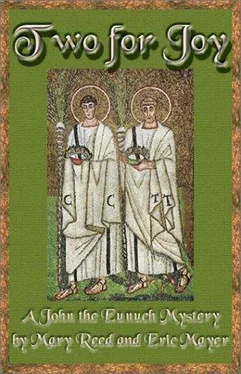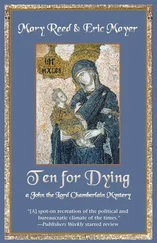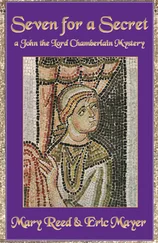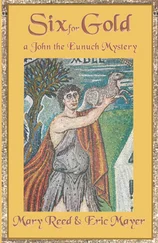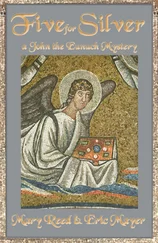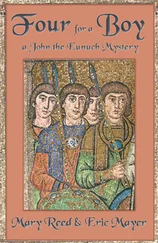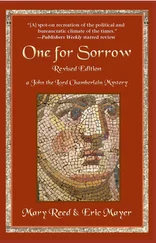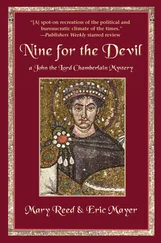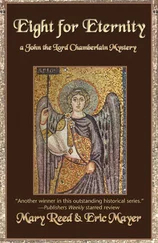Mary Reed - Two for Joy
Здесь есть возможность читать онлайн «Mary Reed - Two for Joy» весь текст электронной книги совершенно бесплатно (целиком полную версию без сокращений). В некоторых случаях можно слушать аудио, скачать через торрент в формате fb2 и присутствует краткое содержание. Жанр: Исторический детектив, на английском языке. Описание произведения, (предисловие) а так же отзывы посетителей доступны на портале библиотеки ЛибКат.
- Название:Two for Joy
- Автор:
- Жанр:
- Год:неизвестен
- ISBN:нет данных
- Рейтинг книги:5 / 5. Голосов: 1
-
Избранное:Добавить в избранное
- Отзывы:
-
Ваша оценка:
- 100
- 1
- 2
- 3
- 4
- 5
Two for Joy: краткое содержание, описание и аннотация
Предлагаем к чтению аннотацию, описание, краткое содержание или предисловие (зависит от того, что написал сам автор книги «Two for Joy»). Если вы не нашли необходимую информацию о книге — напишите в комментариях, мы постараемся отыскать её.
Two for Joy — читать онлайн бесплатно полную книгу (весь текст) целиком
Ниже представлен текст книги, разбитый по страницам. Система сохранения места последней прочитанной страницы, позволяет с удобством читать онлайн бесплатно книгу «Two for Joy», без необходимости каждый раз заново искать на чём Вы остановились. Поставьте закладку, и сможете в любой момент перейти на страницу, на которой закончили чтение.
Интервал:
Закладка:
The answer came with a shake of the head. “Just a stone which I hope to pass in due course. I would prefer to avoid having to submit to the surgeon’s knife. Now, since I have urgent business to attend to, I’ve decided to place you in charge of making arrangements for this festive gathering I mentioned. I’m certain that it will be a credit to the household. Nothing too extravagant, of course.”
The prospect of arranging a banquet was more to Anatolius’ liking than that of joining the legal profession. “I’ll consult with the Lord Chamberlain and ask for his advice, then,” he said with a smile. Surely this ghastly whim of his father’s would pass, most likely with the stone. He would enjoy the banquet at any rate. “Perhaps I could engage some of Isis’ girls to entertain? In an appropriately genteel manner, of course.”
Aurelius laughed. “You are incorrigible, Anatolius! But take care that whatever you arrange does not lead you-or any of us-into danger. There will be absolutely no recitation of scurrilous epigrams, for example.”
Anatolius assured him that he would be very careful.
“Then I must be away,” his father replied. “We shall discuss the banquet further tonight. You can tell me then, having consulted your friend John, how your arrangements are proceeding.”
Aurelius departed, leaving his son sitting by the desk. Before leaving, Anatolius quickly pushed a codex over the skull that grinned up at him from the desk top with over much familiarity.
The face of death atop the stylite’s column was less easy to ignore.
As John approached the platform where the stylite’s charred remains lay, a flock of crows rose with raucous protests, forming a roiling black cloud in the bright morning sunlight. With the birds gone, he could hear the buzzing drone of flies, their smaller but no less busy companions.
Unfortunately even the brisk breeze blowing in from the sea could not quite dissipate the odor of burnt flesh emanating from the body in the middle of the confined space atop the column.
Suppressing a gag, John reached over the iron railing and, grasping Gaius’ hand, helped the heavyset physician clamber up off the ladder. With both of them now on the narrow platform, it was difficult to avoid treading on the remains of Matthew the Pure. John looked away, out over tiled rooftops, but the white-capped swells of the sea visible beyond them did nothing to subdue his sudden nausea.
“In my time, I’ve buried the dead on battlefields, sometimes after they’ve been lying in the sun for a day or more,” he remarked to the physician, “but this is far worse. At least a soldierly death is clean. This was not.”
“I have yet to witness a clean death,” replied Gaius bluntly. He vigorously shook the railing fencing in Matthew’s own battlefield, dislodging chunks of rust. “But I have to say that if Matthew slept leaning against this, his deity must surely have had a hand on him.”
Remembering how the burning stylite had flung himself vainly against the railing, John realized the rusty iron was stronger than it appeared, but said nothing. He glanced down. From this height, Felix, the excubitor captain standing guard below, resembled a small, poorly detailed mosaic figure. A curious crowd had already gathered in the forum. Justinian, John knew, would have the remains of Matthew and the other dead stylites spirited away during the coming night to avoid any further public commotion. But first the emperor had ordered John and Gaius to inspect the bodies where they lay in the hope of finding some pointer to the reason for their mysterious deaths.
It was all very well for Justinian to give orders, Gaius had grumbled on their way to the forum, but he didn’t have to personally carry them out. Felix, with a wolfish grin, had pointed out that that was one of the advantages of being emperor. Someone else would handle unseemly matters or those liable to soil imperial hands. Felix, however, was now standing safely and cheerfully below. It was Gaius and John who were aloft, staring down at the blackened ruin of what had once been a man.
Grunting with effort, Gaius knelt heavily down beside the charred corpse. If the physician had indeed been inebriated the night before, he showed no ill effects. John wondered if the maidservant had mentioned his futile visit to her master. Perhaps not. Both he and Gaius had awoken to a summons to an audience with Justinian. Now here they were, standing on a windswept platform high above the city, seeking an answer to an impossible death.
“Sanitary conditions up here should be much worse,” noted Gaius, gesturing expansively with a curved bronze knife he had produced from his bag and barely missing John’s hip. “But these holy men eat and drink very little and they evacuate dryly, like sheep.”
John nodded silently.
The physician pushed aside one of the heavy chains lying across what remained of Matthew’s body and continued his study. “I see that our ravenous winged friends have already begun my investigations for me,” he commented.
John nodded again, then glanced at several large crows perched expectantly on the wooden crosses rising from the roofs of the nearest houses. He preferred looking at them to observing Gaius at work. After a moment, he forced his attention back to his own task, that of examining the departed Matthew’s cramped living quarters.
There wasn’t much to see. The platform was so small that it took but a few paces to cross it from one side to the other. It was obvious at a glance that there was nowhere a murderer could have concealed himself.
John voiced the thought while examining two wicker baskets beside the rusted railing. One basket held a few loaves of the bread whose enticing aroma John had smelled the afternoon before, the other a small heap of olives and figs. The hungry crows had touched neither bread nor fruit. It struck John that while the olive branch promised peace, for Matthew the Pure, the peace that comes with death had been hard won.
John squeezed sideways past Gaius, who, muttering a mild protest, continued wielding his knife intently. An impossibly filthy and tattered rag that had once been a tunic was tied to the railing. Perhaps it had been part of the stylite’s wardrobe. John prodded at the disgusting scrap with his booted foot.
“It always amazes me how these stylites attain such advanced age, given their living conditions,” remarked Gaius conversationally, glancing up. “A good many of my patients succumb to disease or accident by the time they’re thirty, despite my ministrations and not, I hasten to add, because of them, no matter what you hear from the palace gossips.” A smile briefly illuminated his ruddy face. “And yet,” he continued thoughtfully as he returned his attention to the dead man, “Matthew lived up here for longer than that, half-naked, tormented by vermin, exposed to the elements. Of course, I am told that like our emperor, he abstained from meat. Perhaps that was his secret.”
“Have you ascertained anything of use concerning his death?” John was eager to take his leave.
Gaius rubbed thoughtfully at the side of his bulbous purplish nose, the nose of a dedicated devotee of Bacchus. “Not much that wasn’t obvious to begin with, John. Look, here.” He pointed his knife at the dark cavity he and his assistants the crows had cut into the blackened corpse.
John leaned closer, waving away the swarming flies buzzing around his head. Matthew, or what remained of him, lay on his back. His head had canted to one side of his body and a large yellowish bone, a thigh bone, protruded slightly from a fire-ravaged leg. The wet mess visible inside Gaius’ investigative opening revealed nothing strange to John, who said as much.
“Our friend’s innards, as you can see, are quite unharmed, barely cooked,” Gaius replied in a matter of fact manner. “That’s because the body is full of watery substances-blood, phlegm, bile-so although the outer parts may be burnt away, the inner organs tend to be protected. It’s a very interesting and surprising effect. I regret to say that I have observed it more than once, but I suppose that’s hardly to be wondered at given that builders will insist on constructing ill-made wooden tenements and then compounding their errors by getting tenants who tend towards carelessness with their braziers.” He sighed. “But Matthew here burned from the outside. He had no brazier, and since there’s nowhere an assailant could have concealed himself, the obvious conclusion is that he was struck by lightning. And so I shall report to Justinian.”
Читать дальшеИнтервал:
Закладка:
Похожие книги на «Two for Joy»
Представляем Вашему вниманию похожие книги на «Two for Joy» списком для выбора. Мы отобрали схожую по названию и смыслу литературу в надежде предоставить читателям больше вариантов отыскать новые, интересные, ещё непрочитанные произведения.
Обсуждение, отзывы о книге «Two for Joy» и просто собственные мнения читателей. Оставьте ваши комментарии, напишите, что Вы думаете о произведении, его смысле или главных героях. Укажите что конкретно понравилось, а что нет, и почему Вы так считаете.
